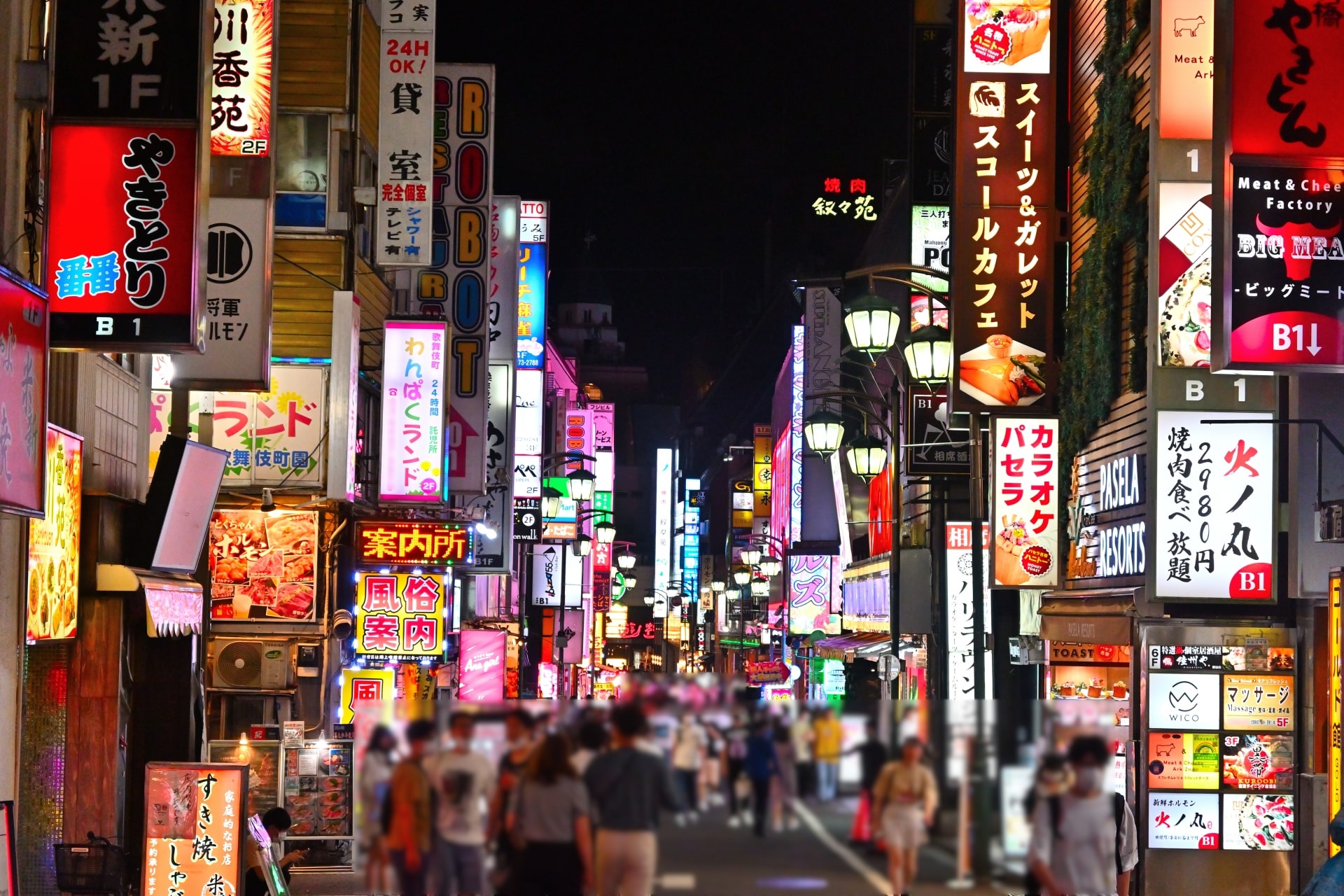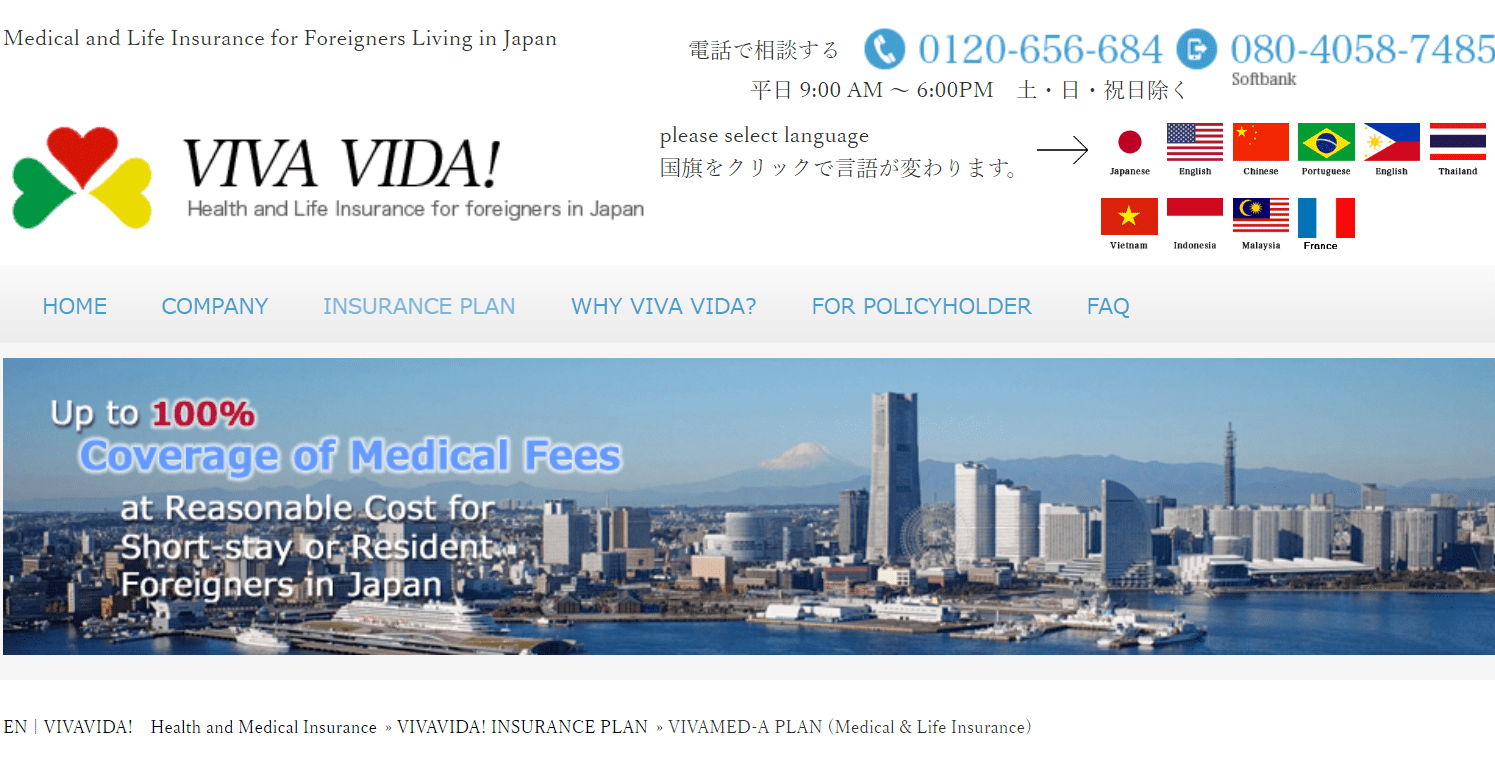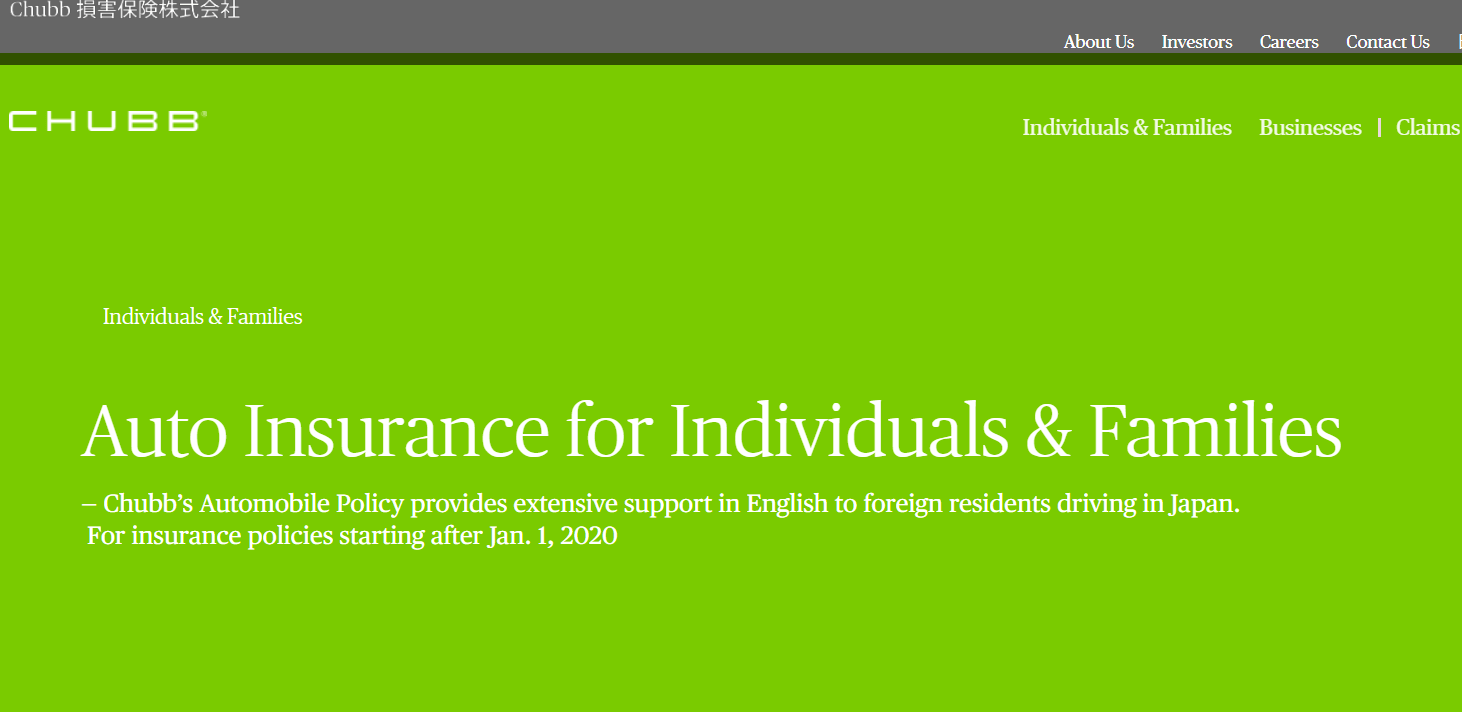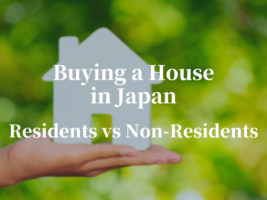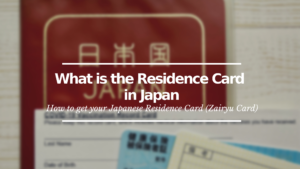Insurance Options in Japan
Medical, Life, and Non-life insurances in Japan
Insurance is a topic that many try to avoid when they don’t know much about it. However, you should seriously consider this, especially if you’re planning on living abroad. And living in Japan is no exception.
Although there is a large language barrier that can make things complicated and confusing, Japan as a country is putting effort into making things easier for foreigners to come and live in Japan.
In this article, I will explain a little about the overview of insurance for foreign nationals in Japan as well as introduce to you some of the most common and well-known insurances in Japan. I will cover medical insurance (both public and private), life insurance, and non-life insurance in this article. Get to know some of the insurance options in Japan.
Overview of insurance for foreign nationals in Japan
Before we go into the details of each insurance type, let me briefly show you the overview of insurance for foreigners in Japan. The following are results from a survey made by the company “Survey Research Center Co., Ltd.” to 1,000 foreign nationals in May 2022.
When it comes to public insurance, 95.9% declared that they are enrolled in public medical insurance.
When it comes to private insurance, regardless of the type of insurance, only 53.3% are enrolled in some type of private insurance. Out of that 53.3%, 32.3% are enrolled in private health insurance, 27.3% are enrolled in life insurance, and 22.4% are enrolled in auto insurance.
Reasons for not enrolling in private insurance include: being too expensive to pay (36.6%), too complicated to understand (30.8%), and not knowing who to consult (25.5%). However, about 40% of those not enrolled in private insurance say they are interested in applying, especially those who are staying less than 3 years in Japan such as students.
Public Medical Insurance
You should know that everyone (Japanese and non-Japanese) who lives in Japan or who is staying for over 3 months in Japan has to enroll in one of two public medical insurance options Japan offers. these options are National Health Insurance (NHI) and Employee Health Insurance (EHI).
If you are enrolled in one of these health insurances, the Japanese government will cover about 70% of costs including medical appointments, medical tests, and medical prescriptions. This means you need to pay only the remaining 30%. This percentage can also vary depending on the patient’s income. This coverage amount is the same for both NHI and EHI.
Other benefits that these two insurances share include High-cost medical care benefit system (高額療養費制度), Direct Payment System for the Childbirth Lump-Sum Allowance (出産育児一時金), and Long-Term Care Insurance (介護保険制度).
▽Learn more about medical insurances in Japan!▽
National Health Insurance
The National Health Insurance (国民健康保険), also known as simply “NHI”, is one of the public medical insurance options you have when living in Japan. This insurance is managed by the Prefectural government and the municipality.
People eligible for this insurance include those who are self-employed, those unemployed, and foreign nationals who are staying longer than 3 months in Japan
The insurance premium will depend on your income from the year before as well as your age and the number of people in your household. The details of how this insurance premium is decided vary depending on the municipality.
Employee Health Insurance
Employee Health Insurance (社会保険), also known as simply “EHI”, is the other public medical insurance option you have when living in Japan. This insurance is managed by either the National Health Insurance Association (全国健康保険協会) or the corporate health insurance society where the recipient works at.
People eligible for this insurance include those who work at a private company. This includes both full-time and part-time (as long as they meet the requirements).
The insurance premium will depend on your average income from April to June, and this cost of EHI is split between employee and employer, making it more economical compared to NHI.
Private Medical Insurance
Private medical insurance is managed by private insurance companies. As opposed to public medical insurance, private medical insurance is not mandatory. “If public medical insurance is mandatory in Japan, then why is there private medical insurance?”, you might ask.
Many people in Japan enroll in private medical insurance in order to cover some of the costs that patients are normally responsible for after public insurance is applied. Also, There are some things that public insurance doesn’t cover such as orthodontics and some types of advanced medical treatments.
The cost of these insurances can vary depending on the insurance company as well as your age and the coverage plan you choose. One thing to be careful about is that not everyone is eligible for private medical insurance. Depending on your state of health or your age, there’s a possibility that you can not enroll in certain insurances. This will vary on the insurance company, so be sure to check thoroughly beforehand.
The following is a private medical insurance company that offers services in English.
VIVAMED-A PLAN (Medical & Life Insurance)
VIVAMED-A PLAN offers both Medical & Life Insurance in one package. They offer two types of packages (with upgrades available); One for children (1 – 17 years old) and one for adults (18 – 55 years old).
Medical insurance covers up to 1.6 million yen for medical fees for illness and injury including hospitalization. And the life insurance plan covers up to 5 million yen for death due to an accident and up to 3 million yen for death due to illness.
▶Official Website: https://vivavida.net/en/plan/meda/
Life Insurance
Life insurance, known in Japan as Seimei Hoken (生命保険) is another type of insurance that you might want to consider if you have family members that don’t work and would be in financial trouble in the case something bad would happen to you (although we all don’t want to think about that possibility).
All life insurance that you can get in Japan is private, meaning that they are all managed by insurance companies. This also means that there are requisites that you need to be met in order to be eligible for said insurance. The general requisites to get life insurance in Japan for anyone are the following. These requisites also apply to private medical insurance.
Your state of health:
You will need to take a medical checkup beforehand to see your current state of health. Your medical history will also be carefully checked. If you have had serious surgery or have been treated for a disease before, this might affect the result. Also, if you’re in the middle of treatment, overly overweight, or pregnant when applying for insurance, this might affect the result as well.
Age restrictions:
This point is sort of a continuation of the previous point. There is an age limit when it comes to applying for life insurance. This will vary depending on the insurance company. usually, this age limit is 80, however, there are some cases where it is 90 (years old).
Occupation restrictions:
Depending on your occupation, there are cases where you cannot get life insurance, or even if you get it, it comes with a limited insurance amount. Occupations that are considered to be dangerous such as car racers, mountain climbers, stuntmen, circus members, Ice hockey players, rugby players, pro boxers, and pro wrestlers are said to have difficulties getting regular life insurance.
Social relationships:
This refers to either you have connections with Japanese Anti Social Forces. Neither the policyholder, the Insured, nor the beneficiary can have any kind of relations with these types of forces.
Your income:
This one is kind of obvious, but if you don’t have any stable income, you might not be able to get life insurance. Even if you can get insurance, it might be with a limited insurance amount.
In general, the requisites to get life insurance in Japan for foreign nationals are pretty much the same as it is for Japanese nationals. However, you do need to be aware that there are many life insurance companies that don’t offer well-established English support or services. Therefore, depending on the company you choose to get life insurance from, Japanese communication skills will be necessary.
Other than that, you will also need proof that you live in Japan such as your Residence card (在留カード) and Special permanent residence certificate (特別永住証明書). If you don’t have either of these, you might need to do a foreigner registration.
Also, you will need a Japanese bank account.
The following is a life insurance company that offers services in English.
VIVALIFE-A PLAN
The same insurance company that I previously mentioned for private medical insurance, VIVALIFE-A PLAN, also offers plans for Basic Life Insurance. This package is for people between the ages of 18 and 55 (if you are a new member). In the case of renewal, the age restriction stretches out to 60.
This life insurance plan covers up to 5 million yen for death due to an accident and up to 3 million yen for death due to illness. And the premium varies depending on how many payments you want to make the purchase. In the case of one payment, it costs 18,900 yen for new members.
▶Official Website: https://vivavida.net/en/plan/lifea/
Auto Insurance
Although there are many different types of Non-life insurance in Japan, in this article, I will focus on auto insurance since it is the most enrolled insurance type out of the different types of non-life insurance.
There are two specific types of car insurance in Japan which are “Compulsory vehicle liability insurance” and “Voluntary car insurance”. Similar to how things work with medical insurance, voluntary car insurance serves as complimentary insurance that will cover what the mandatory insurance won’t cover.
Compulsory vehicle liability insurance
Compulsory vehicle liability insurance (自賠責保険) is car insurance that, as you can see from the name, is mandatory to get. This means that anyone who owns a vehicle in Japan needs to have this insurance. If you don’t have it, you can’t have your vehicle inspection done, which means you won’t be able to drive your car.
This insurance is to cover the injured in a car accident. It will cover up to 30 million yen in case of death or disability, and 1.2 million yen for injuries. If the cost of compensation and treatment for the victim exceeds these limits, this is when voluntary car insurance comes to play to cover the excess costs.
This type of insurance payout is flat rate based.
Voluntary car insurance
As I previously mentioned, Voluntary car insurance (任意保険) is the type of insurance that will cover the excess costs of a car accident that compulsory vehicle liability insurance won’t cover.
Things that are not covered by the first insurance include property compensation, compensation for the insured person, compensation for passengers, and compensation for the repair of vehicles involved in the accident.
Depending on the insurance company and the product you choose, the amount of insurance benefits will vary. The Insurance premium will also vary depending on how much coverage you want, the age of the insured person, the type of vehicle, how the vehicle is used, and the type of license.
The following is a car insurance company that offers services in English.
Chubb
Chubb is a car insurance company that offers services and assistance in English. They offer a wide variety of packages where you can choose what you would like to be covered with this insurance. They even offer a package that covers damages caused by earthquakes.
You can check for more details and ask for a quote from their website.
▶Official Website: https://www.chubb.com/jp-en/
I hope you enjoyed this article. If you want more information about living in Japan, be sure to check out the following articles as well!
▽Related Articles▽
▼Editor’s Picks▼
Written by
Born and raised in Costa Rica, I started living in Tokyo from college. I love traveling within Japan & around the world. Since I wasn’t born in Japan, I know the cultural impact that you can get when visiting Japan for the first time and what you might be worried about before your trip. And I’ve lived long enough to somewhat understand the nuances of the Japanese culture that make this country such an attractive place to visit. Hopefully I can provide to you both the information you’re looking for and the information you didn’t know you needed to know.





